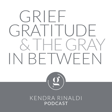
Breath of Healing: Navigating Grief, Parenting, and Surrender- with Nathan Peterson
Nathan Peterson is a seasoned singer-songwriter, speaker, and author whose career spans over 25 years in the music industry. Known for his raw, emotive music and profound insights into the human experience, Nathan has carved out a unique space in the hearts of his listeners.
On March 11, 2016, he lost his daughter Olivia.
After she passed away, she published two books. The first one is entitled "So Am I", to share what he had learned during her life and the second one is "Dance Again" which is his process and practice of grieving, of hurting, of healing, of depression, of anger, of hope, of being. It is his life, his journey, during the 14 months following Olivia's burial.
Nathan's writing and music are infused with his experiences of profound grief, resilience, and healing, fostering a calming presence and a deep connection. His ability to support individuals in their journey to a more present, connected, and restful life has made him a profound voice in both the music and speaking arenas.
Nathan's work and interviews have been featured at Upworthy, Open To Hope, The People of Peoria, Post Consumer Reports and Tiny Buddha
https://www.instagram.com/nathanpeterson/?ref=nathanpeterson.net
Contact Kendra Rinaldi for Grief Coaching or to be a guest on the podcast: https://www.griefgratitudeandthegrayinbetween.com/


